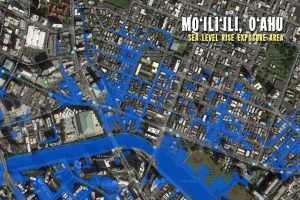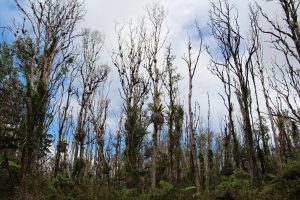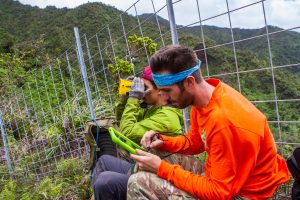Taking action for sustainability and biosecurity
Posted on Dec 31, 2018 in Capitol Connection, Featured“As the only island state in the nation, we know climate change is real,” said Governor Ige. “Through the U.S. Climate Alliance of governors, states like Hawai‘i are stepping up to reduce global warming since our nation’s withdrawal from the Paris Accord. We’re showing the nation and the world that ambitious climate action is achievable. Our Sustainable Hawai‘i initiative tackles the issues facing our forests and reefs, biosecurity, local food production and renewable energy. Hawai‘i is committed to 100 percent renewable electricity. We’re establishing a carbon offset program to invest in our native forest watersheds. And this year, I signed legislation committing to carbon neutrality by 2045 for a clean, renewable future.”
- Hawai‘i Climate Commission issues statewide call to action – A first-ever statewide threat assessment with inundation maps and sea level rise mitigation for
Gov. Ige has made biosecurity and fighting against invasives such as rapid ‘ohia death one of his top priorities for the state.
every island was prepared by the Department of Land and Natural Resources’s (DLNR) Office of Coastal and Conservation Lands. The Climate Commission is planning a major summit on climate change for early 2019.
- Expanded biosecurity strategies – The Ige administration has produced the state’s first Interagency Biosecurity Plan to take an aggressive approach to fighting invasive species such as rapid ʻōhiʻa death and little red fire ants. Governor Ige has made biosecurity his top issue as the chair of the Western Governors’ Association to develop strategies with other states. The state has also created an online permitting system to facilitate review and inspection by the Plant Quarantine Branch.
- Protection for critical watersheds and recreation lands – In October, DLNR and numerous government and non-profit partners announced the acquisition of 2,882 acres of Central O‘ahu forest and fallow lands from Dole Food Company. Called the
Helemano Wilderness Recreation Area, the area will protect vital water resources and native species protection and offer opportunities for outdoor activities and conservation management. The State Commission on Water Resource Management is focusing on better water management for whole ecosystems. Its decision on interim instream flow standards for East Maui watersheds protects ecosystems, taro farming, Native Hawaiian practices as well as other agricultural and domestic uses. DLNR’s first-ever Law Enforcement Training Academy for new conservation officers honored four graduates. Their broad training covers protection of natural and cultural resources and enforcement of all related laws and rules.
Read more in the January Capitol Connection newsletter.
Subscribe to the Capitol Connection newsletter.


